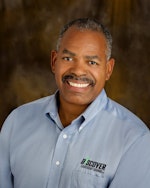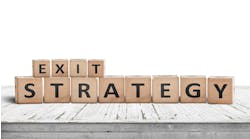Quite often we go through our lives focused on fixing things in every aspect of our lives, such as our business process, vehicle, marriage, our children, our friends and even sometimes ourselves.
In the context of what we do in the collision industry regarding restoring our customer’s vehicles to a safe, reliable resource, we should be focused on fixing what is broken. However, when the focus is on the people on our team, their behavior, how they interact with each other, and the effectiveness of the communication between them, our focus should not be on fixing anything.
| Join the Network! | |
 |
Join the network and get recieve tips, news, article and more! |
In my nearly 30 years of partnering with leaders to develop themselves and their teams, I have observed that when we focus on fixing the people in our lives, we contextualize how we manage our human commodity in a negative way. I am clear that there are behaviors, relationships, and methods of communication that need to be fixed, however, “fixing” in this context is being driven by a negative energy. The reason it is important to understand that is we do not need to wait for a car wreck or for something to be broken for us to work on ourselves or our relationships.
For illustrative purposes, let’s take “Paige”, a five year body shop manager who after attending our four day Master Graduate Leadership Program, returned to the shop and had a meeting with her entire team. She asked them, “What can I do to be a better leader and help each of you be more successful? One of her employees immediately raised his hand and asked “What did we do wrong?” Though that typically is the first reaction, Paige actually opened the door to a number of new possibilities when she asked that question.
When we wait for something to be wrong before we start fixing things, we see those situations as broken and we are being driven by negative energy. I submit that no matter what is going on in your life, there is nothing wrong and nothing is broken. I submit that there is absolutely a lot that can be fixed in our lives and relationships, however, I believe that we can be driven to fix those things deliberately with positive energy understanding that we ALL occupy the largest room in the house and that is the room for improvement.
I am clear that for some of you dealing with some very tough circumstances these sound like the words of a crazy man, however, I have dealt with some very tough circumstances in my life and I can clearly say that being driven by negative energy or waiting for something to break in the relationship you have with yourself or others will never create a positive step forward.
When we wait for things to go wrong or breakdown, the first thing that we do is begin diagnosing the problem, like a great estimator examining a wrecked vehicle. I have come to realize that once I have invested time and energy focused on determining what went wrong, once I have searched this damaged relationship or situation from bumper to bumper and I find an answer to what is wrong, the only benefit will be who or what I should assess blame to and that has not proven to have any value in fixing the situation. I further submit that every ounce of energy we spend on determining who or what to blame or “righting” wrongs is wasted energy. Quite often, the real problem is that we are managing people based on our expectations, and not by clearly communicated outcomes. When the outcome isn’t clear, things very likely will go wrong.
Some would argue that when you right a wrong, the person that was wronged will feel better and I agree that may be true. However, I submit that it would be more valuable to acknowledge the wrong and set a positive outcome to move forward focused on what you will do to fix what is wrong. This commitment should be to the things you have control of 100%. This will allow you to make a commitment to a course of action and spend all of your energy in a positive, forward moving direction, focused on producing a mutually agreed on outcome that everyone involved has control over.
When we look for what went wrong, we are looking for answers. When I asked people what the value of this behavior is they respond, “You will know what not to do moving forward.” I agree that is true, however, it is a waste of time and energy. If you were to set a positive outcome, the next step would be to clearly communicate the outcome to everyone involved in making that outcome a success. If you gain agreement from them to deliver what you need from them to get to the outcome and they agree, we will not need to know what not to do, because we understand that the only thing that will move us forward is knowing what to do.
I had a good friend whose 7 year old daughter was battling cancer. He said to me "Mike this is wrong and it is broken, how can this possibly be right?" My response to him was "It is not right or wrong, it just is and I suggested that we spend ALL of our energy loving on her, being positive and strong for her, and taking advantage of every moment with her, because that is what we have control of 100%.” He saw the value in that approach and we did until the day she died.
Whenever we assess a circumstance as positive or negative, right or wrong-what we are really addressing is whether our expectations were met or not. If things turned out the way we expected they would, we generally assess that as positive or right. If the circumstance does not turn out the way we expected it to, we will generally assess that as negative or wrong, and because energy and action follow thought, there is predictability in both of these situations.
I would like to suggest there is a better way to fix what is wrong in our relationships at work and home. There is a much healthier way to get more production from your team than cussing and fussing. I suggest that the most positive approach is in the question and not in waiting for something to go wrong and then start looking for an answer.
There is a difference between "living the question" and looking for the answer to what went wrong. When we are looking for the answer to what went wrong, the view is that of the observer and that view is generally being driven by pain or negativity. The driver to fix what went wrong is generally going to be negative energy. The observer is generally looking for the answer outside of themselves. If you are looking for the answer in this context and you find it, that answer is generally something you or someone else has done and that answer will be historical in nature. When you find that answer in the context of this conversation it will already be in a state of decay, in others words it will not benefit you moving forward.
When you approach the same situation by "living the question" it will produce a much different outcome, your view will be that of the observed. In the example with Paige the context of her question to herself was "What am I committed to do build a better team?” She became aware in our program that some of the answers to that question could be uncovered by asking her team. The question my friend was living was "What am I committed to do to ensure that I create a positive, supportive environment for my daughter?"
When you are living the question, you create a proactive, positive answer moving forward. Even if the answer produced is something that you have done before (that may or may not have worked at that
time), please be aware that this approach is different from anything that you have done before and will likely produce a result that you have not experienced before. In this present moment everything is different, the environment is different, resources are different, your mindset is different, and the people around you will hear you differently. No matter what answer is created in the context of looking for and living the question, that answer will begin a new positive step forward.
Living the question creates an environment where you are accepting personal responsibility to deliver on a promised outcome. Living the question means that there will be NO space for blame. Living the question means you will create a new future based on your commitment to focus on a positive outcome. Living the question will create a way of "being" that can be replicated to invent new positive futures moving forward again and again.
What question are you willing to live to energize your team, create a more positive environment, improve the effectiveness of your team’s communication, and get more production from yourself and your team? What do you have 100% control of that you are willing to make a commitment to deliver that will produce a more positive outcome in your world today?
It is possible for one person to make an incredibly positive impact on an environment at work and at home, in fact that is the only way it will happen. Here is a question I challenge you to live today, Why Not YOU?




